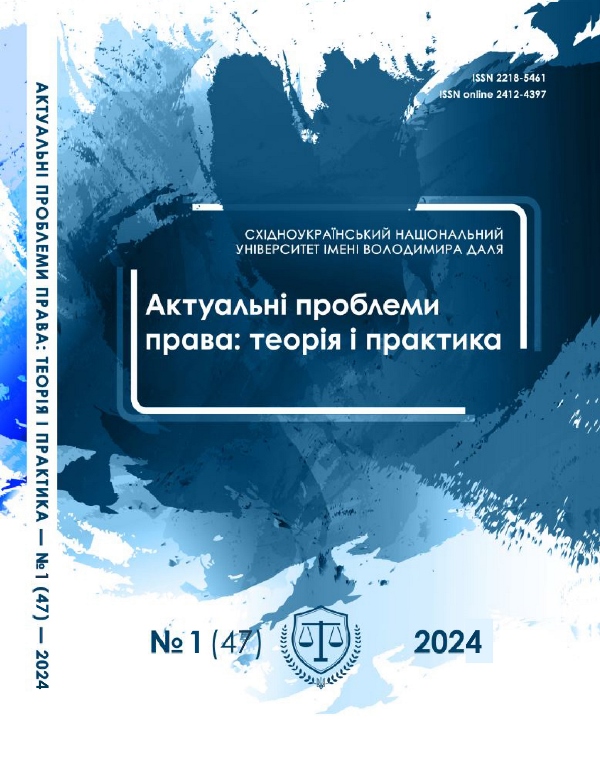PARTICULARITIES OF DECENTRALISATION IN THE REPUBLIC OF ESTONIA - EXPERIENCE FOR UKRAINE
DOI:
https://doi.org/10.33216/2218-5461/2024-47-1-267-279Abstract
The paper presents a comparative analysis of
certain aspects of the decentralization reform in the
Republic of Estonia and in Ukraine, in particular, the
peculiarities of reforming the administrativeterritorial
structure of Estonia; the competence of selfgovernments
to provide electronic services to the
population, including social services; the history and
principles of e-Government and digitalization in
Estonia; the formation and improvement of the
functions and tasks of local self-government bodies in
the context of decentralization; the specifics of the
negotiation process between the Association of
Municipalities and the Association of Ukrainian
Municipalities. Decentralisation of functions between
the central government and local governments is
based on an established system of administrative and
territorial structure, transparent and sustainable
financing policy, and a defined institutional status and
competence of local governments. An important
component of decentralisation is the ability of
territorial communities to make decisions on local
issues and monitor their implementation. Successful
decentralisation implies the effective ability of local
governments to exercise their powers to provide a
range of public services, including social welfare and
protection, which are always of great relevance to
community residents. The study of the experience of
other EU countries in decentralising power, the
competence of local governments, and building
interactions between centralised and decentralised
actors is important for Ukraine. The purpose of the
study is to formulate a scientific basis for the
directions of the local self-government reform in
Ukraine in accordance with European principles and standards by comparing the positions of government officials, academics and civil society institutions on this issue, taking into account the experience of individual EU countries.
Keywords: decentralisation, local selfgovernment, e-government, e-services, social services, municipalities, intergovernmental cooperation.

